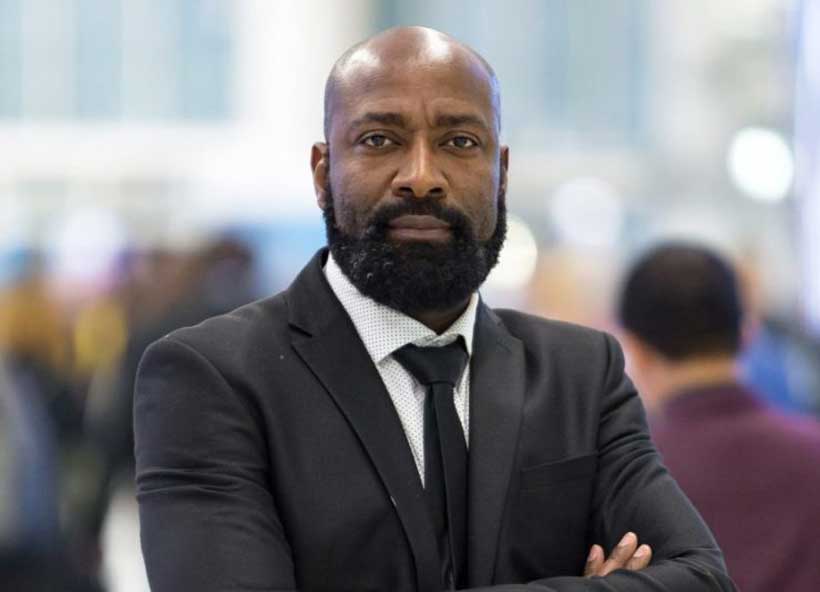Africa
Russia-Africa Expo-2025: Spotlighting Africa’s Economic Potentials for Russian Investors -By Kestér Kenn Klomegâh
The main outcome was not only the creation of a full-fledged partnership ecosystem, where joint working groups and development institutions will ensure the sustainability of cooperation in the long term, but also the creation of a new platform for ongoing communication between entrepreneurs from Russian and African small and medium-sized businesses.

Designed as an investment and entrepreneurial platform, the ‘Russia-Africa Expo-2025. Made in Africa’ held in Moscow, in mid-October, attracted state officials, investors and business people from Africa and Russia who are highly-interested in mutually beneficial dialogue and developing business collaboration. Sharing the same platform, the participants tried to find answers to the critical questions including why do Russian entrepreneurs want to work on mega-projects with partners from Africa. For Africans, their concern was to export basic agricultural products, handmade crafts and artifacts to the Russian market from contemporary Africa. On the other side, Russians are increasingly in search of profitable businesses across the continent, amid renewed debates and narratives over Russia’s low economic representation in the African discourse. For decades, the continent’s stories have largely been filtered through external lenses—often highlighting Africa’s development progress especially transforming as the last frontier with an economic power.
According to the organizers, ‘Russia-Africa Expo 2025. Made in Africa’ was a unique space to foster economic and commercial exchanges. The organizers described it as “the solid platform for entrepreneurs to deliberate business collaborations, expertise and innovations, and to transform ideas into tangible opportunities for both Russian and African entrepreneurs.” It was the second edition of Russia-Africa Expo, aimed at promoting the continent’s economic influence and, at least, to project the exceptional visibility by African and diaspora actors. In this exclusive interview, Louis Gouend, Founder and Chief Executive of African Business Club (ABC) and Chairman of the Commission for Work with African Diasporas of the Russian-African Club of Moscow State University named after M.V. Lomonosov, discussed the main results of the week-long corporate entrepreneurial gathering and hightlighted Russia’s comparative stakes and perspectives with African partners. Here are the interview excerpts:
—
Q:How confident are Russian investors in developing the African market in the current geopolitical environment?
Louis Gouend: Russian business confidence in working with Africa has reached a qualitatively new level. Whereas previously these were fruitless attempts at market exploration, today we see a fully formed strategy. More than 200 Russian companies represented at the Russia-Africa Expo-2025 forum, not only from the raw materials sector, but also from IT, pharmaceuticals, agriculture, and education.
Key indicator: at the financial instruments session, Payment Agent A7 and representatives of the Russian Export Center (REC)presented specific products for the African market with state guarantees. These aren’t just words – this year alone, the volume of transactions through these mechanisms has grown by 40%. Russian entrepreneurs understand that Western sanctions have created a unique window of opportunity to reshape relations with Africa.
Q:How are trade and economic relations developing after the two Russia-Africa summits?
Gouend: We have gone from political declarations to concrete projects. Trade turnover reached $23 billion last year, but its structure is more important: while grain and fertilizer accounted for 80% of the total last year, today the share of machinery and equipment (15%), IT solutions (7%), and educational services is rapidly growing.
After Expo-2025, we clearly identify three trends:
– Diversification: from raw materials to technologies and joint ventures
– Localization: establishing assembly plants and distribution centers in Africa
– Financial architecture: developing alternative payment systems
Q:What are the prospects for African exporters in the Russian market?
Gouend: The situation is changing dramatically. At the “Made-in-Africa” pitch session, 15 African companies signed memorandums of understanding on supplies to Russia. Ethiopian coffee suppliers plan to capture 5% of the Russian premium coffee market by 2026.
Russia is simplifying customs procedures for African products, according to a representative of the Ministry of Industry and Trade. By 2025, imports of African goods are expected to grow by 25%, particularly in the following categories:
– Coffee and cocoa
– Fruits and nuts
– Pharmaceutical raw materials
– Natural cosmetics
Q:Which countries and industries were most significant in the discussions?
Gouend: The most active countries were:
– Ethiopia: as a hub for East Africa (logistics, agribusiness)
– Nigeria: energy and IT
– Cameroon: agriculture, distribution, and culture
– Burkina Faso: medicine, fruit processing, and the film industry
– Côte d’Ivoire: fertilizers, cocoa, financial services, and culture
– Mali: education and development of Russian-African women’s entrepreneurship
– Rwanda: mining
– Gambia: pharmaceuticals, healthcare, and construction
Key areas of cooperation:
1. Energy and mining – 35% of projects discussed
2. Agribusiness and food security – 25%
3. Digitalization and IT – 20%
4. Education and training – 15%
5. Pharmaceuticals and healthcare – 5%
Q:What noticeable challenges remain, and what agreements have been reached?
Gouend: Despite significant progress, systemic challenges remain. Key among these remain logistics infrastructure, the need to develop financial mechanisms adapted to current realities, and the importance of bridging the information gap between business communities.
Following the Russia-Africa Expo-2025, a qualitative shift in the approach to cooperation can be observed. Fundamental agreements were reached on the creation of new institutions for interaction designed to make cooperation systemic. A series of framework agreements and memoranda of understanding were signed between key players from the private and public sectors of both sides. These documents lay the foundation for the implementation of specific projects in priority sectors, such as agriculture, energy, digitalization, and personnel training.
The main outcome was not only the creation of a full-fledged partnership ecosystem, where joint working groups and development institutions will ensure the sustainability of cooperation in the long term, but also the creation of a new platform for ongoing communication between entrepreneurs from Russian and African small and medium-sized businesses.
===

























